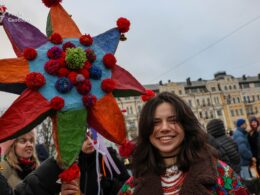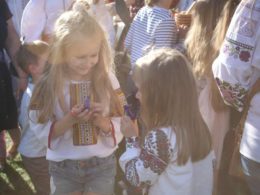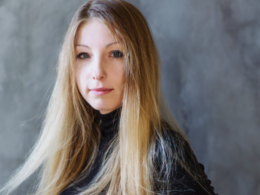Iryna Tsilyk: “Our door is battered by heavy Russian boots.”
Iryna Tsilyk, born in 1982, in Ukraine, is a Ukrainian filmmaker and writer. She is a member of the European Film Academy and Ukrainian PEN International. She achieved recognition by winning the "Directing Award: World Cinema Documentary" at the 2020 Sundance Film Festival for her work on the film "The Earth Is Blue as an Orange."
I don't really want to draw parallels to this war, although I understand why we look for them. It’s because this way we remind ourselves and others that all of this has happened before, that it will happen again, and that none of this is unique - neither this war, nor our resistance. But at the same time, it seems to me that the search for parallels is a kind of self-reassurance, a masking. Now is the time to call things by their proper names. There is no David and Goliath here, no Achaeans and Trojans, no Achilles, Hector, etc. Here, there is the consistent genocide of the Ukrainian people by Russia. Here there are daily war crimes, torture, executions of unarmed civilians, when you can kill over 50 peaceful people who came to a funeral with one strike. Earlier, on the contrary, I needed to look for these parallels, I wanted something to lean on. In the first years of the war, I was looking for some confirmation that we are not alone in this great misfortune, that the experience of others might give us something, explain something to us in some way. And with a completely new perspective, I tried to learn information, books about other wars – Syria, Chechnya, the Yugoslav wars, Afghanistan, and more distant wars. I remember endlessly rereading war poetry from 100 years ago and more during the first years. I constantly saw rhymes there, subjects close to us. Or I would translate [Wystan Hugh] Auden, whom I love very much, and find very close motifs for myself in him. That anxious winter before the start of the full-scale invasion, I was polishing a translation of one poem that endlessly electrified me. This Auden’s poem is called "O what is that sound?". The whole poem is pure suspense and anxiety. It's built on a dialogue between a man and a woman. And the woman endlessly asks, in these refrains, through many stanzas. She first hears, then sees soldiers of a foreign army approaching. And she endlessly asks her husband what that sound is, why they are approaching, and he reassures her that everything is fine, it's no big deal, it's just some soldiers. But in the end he leaves her, and she's alone in the house. And the last stanza is extremely eerie, because she says the lock cracked, the door was broken from outside, oh now they're close, I see their boots are big and black, their eyes greasy and hot. The poem breaks off there, but we know, we definitely know what happened to her, and this is what is happening to us now. Our door is battered by these heavy boots, battered by the Russians.
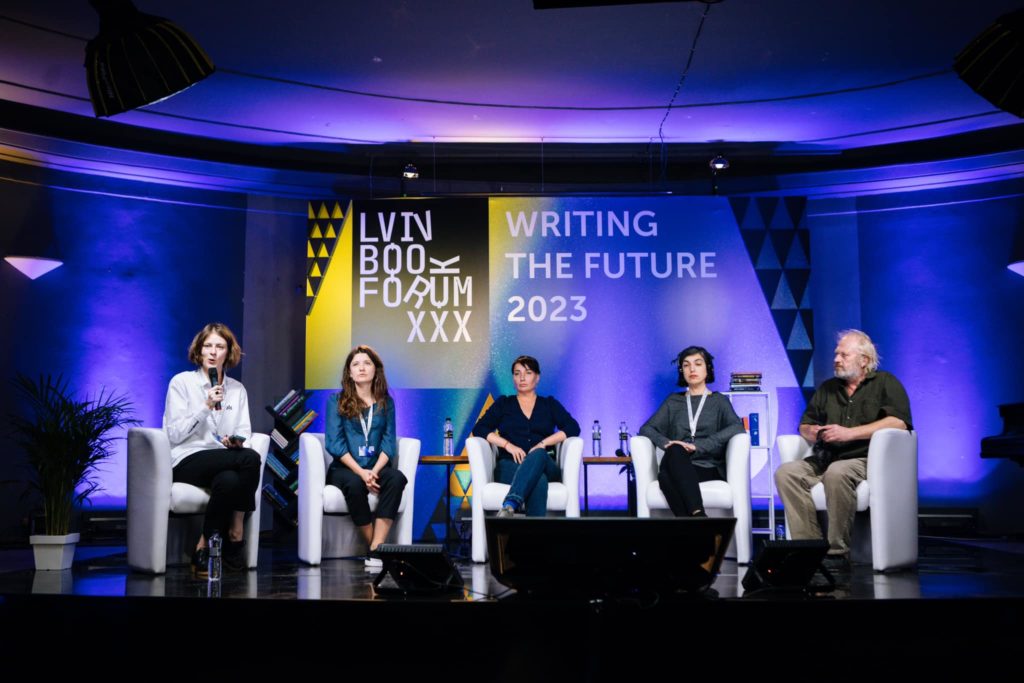
Vakhtang Kebuladze: In 1990s, we distanced ourselves from politics
Vakhtang Kebuladze, born in 1972, in Kyiv, Ukraine, is a philosopher, esseyist and translator. He co-chairs the Ukrainian Phenomenological Society. He is a member of the rock band "Dzhyne" and Ukrainian PEN.
The experience of life in the late Soviet Union taught Ukrainians that all the most interesting and relevant things in science and art could only be obtained through smuggling. One could ask who did more to bring down the Union – dissidents or black marketeers who smuggled in this contraband. So the late 1990s was for us a not so much heroic as an apolitical period. We inherited a disgust for politics, consciously distanced ourselves from it, because it was firmly associated with something dirty.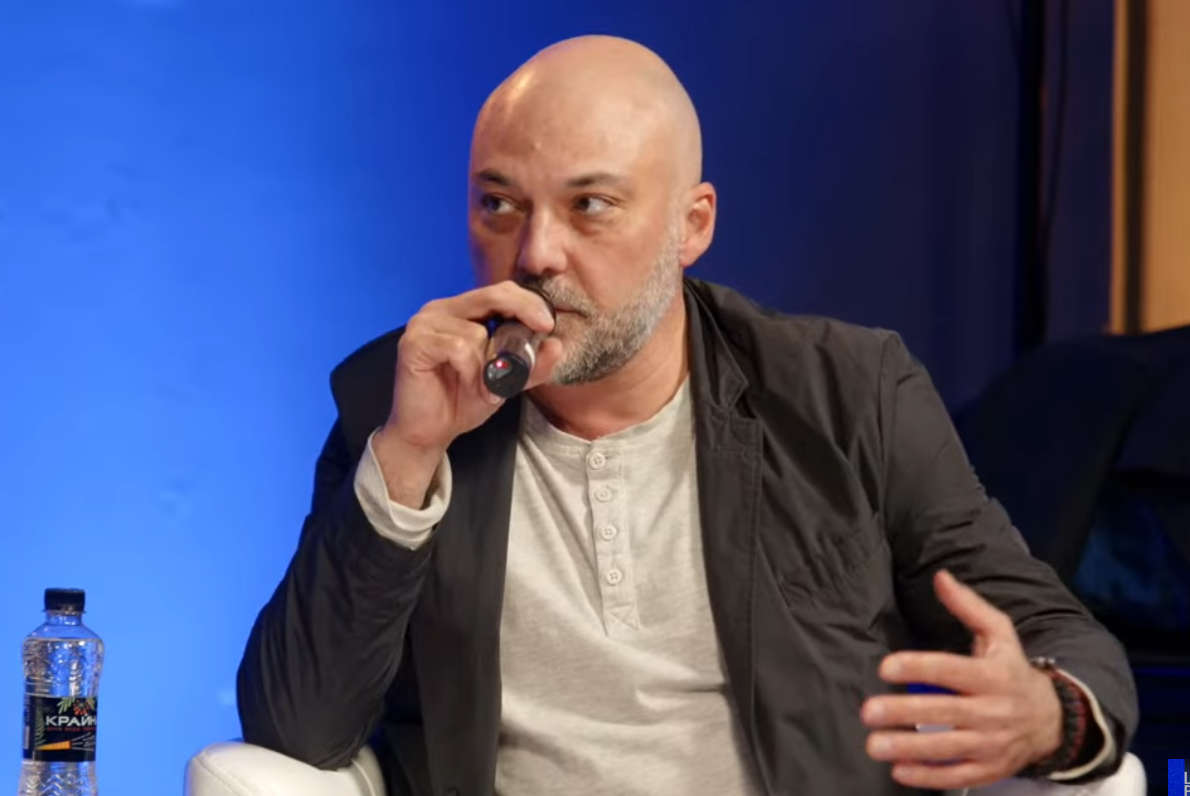
Kateryna Kalytko: We have grown up a lot over the last decade
Kateryna Kalytko, born in 1982, in Vinnytsia, Ukraine, is an accomplished Ukrainian poet and translator. She received the prestigious Joseph Conrad Literature Prize in 2017 and was honored with the Shevchenko Prize in 2023. Kalytko is a member of Ukrainian PEN
Suddenly I understood how precious it is for me now to speak specifically about my generation. I mean those people for whom, regardless of their actual age, the Revolution of Dignity [Euromaidan Revolution in 2013–2014] and the beginning of the latest Russo-Ukrainian war became the core of their identity. That’s now decade since the Revolution of Dignity – a decade of war in fire and blood. We have grown up a lot during this time as a community, but have also entered a phase where everything we knew about ourselves so far will be reviewed. Our self-description is fragmenting, unable to contain all of the great and unbearable experience. What we used to call a community is fragmenting, perhaps logically, after last year's phenomenal unity, and is tinkling like shards of precious porcelain in the black bag of the future, emphasizing generational value ruptures and incommensurability of private experiences. That is why attempts to form a new social contract are so honest. That is why our need to speak to each other sincerely and consciously is critical. The Odesa poet Andriy Khaitsky has an important for me short text. It is a record of the author's conversation with a journalist. She asks how the war has affected his writing, and he answers "directly." And repeats "directly." Because how else can you explain the way this great war has touched everything we do?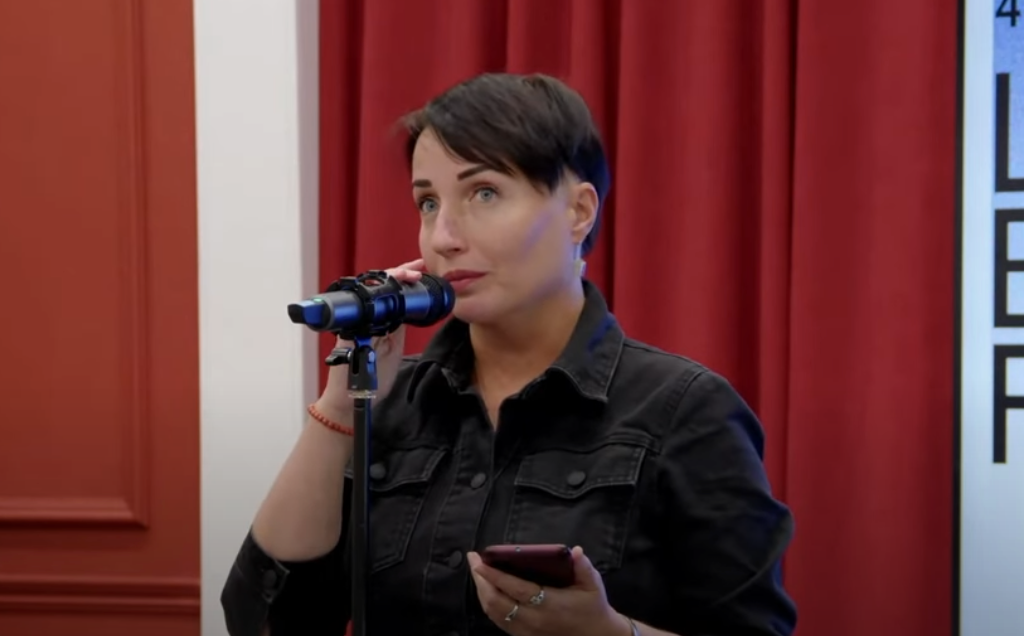
Eleven books to understand Ukraine’s ongoing struggle: a shortlist by Ukrainian politiciansAnd after that, you will forever have the weight and courage to tell your old gods that some of their grand judgments were helpless, and deeds – unwise and not prudent. Warmth and light used to be clinging to the convincing voices of adults in a large common home, as in childhood, not getting out of bed to listen in on family conversations in the kitchen while breakfast is being prepared. That used to be the territory of safety. But we are the adults now, although we imagined it completely differently. This year's Book Forum is already the 30th, and here we bitterly miss many cultural figures killed by Russia. Those who were supposed to be the architects of this future. We just have to always remember and pick up what they could do and what they could teach others. We have learned so much that we did not plan on learning. We learned to understand types of weapons and defenses and how to use them, means of tactical medicine, and their application. We learned to distinguish incoming and outgoing missiles by ear. Ukrainian children and spring starlings perfectly imitate the sound of an air raid alarm. We have a good idea of how to survive the winter without utilities if needed, and a hypothetical nuclear strike.
The future is being decided in Ukraine: key takeaways from YES forum 2023 in KyivWe have learned to speak in even tones about the genocidal war, making the bitter pauses between words and the spasms constricting our throats almost imperceptible, so as not to sadden our foreign colleagues with the degree of experiencing our own pain, so that we continue to be heard. We are still learning to talk to each other, listen, hear, empathize. A good exercise in convincing yourself that the future always exists is appealing to your former self, in the version of autumn 2013, and trying to explain what future lies beyond the mountain range of ten years. Would I change or rewrite any of my big decisions and choices if I knew everything would turn out just like this? No. It would just be good to get the dead back. And if I manage to live another decade, what would I want to say, looking back from that distance at my present self? One simple thing – be responsible, mutually honest, adult daily; it is much more difficult to bear the heavy bloody labor of war than be ostentatious superheroes.


